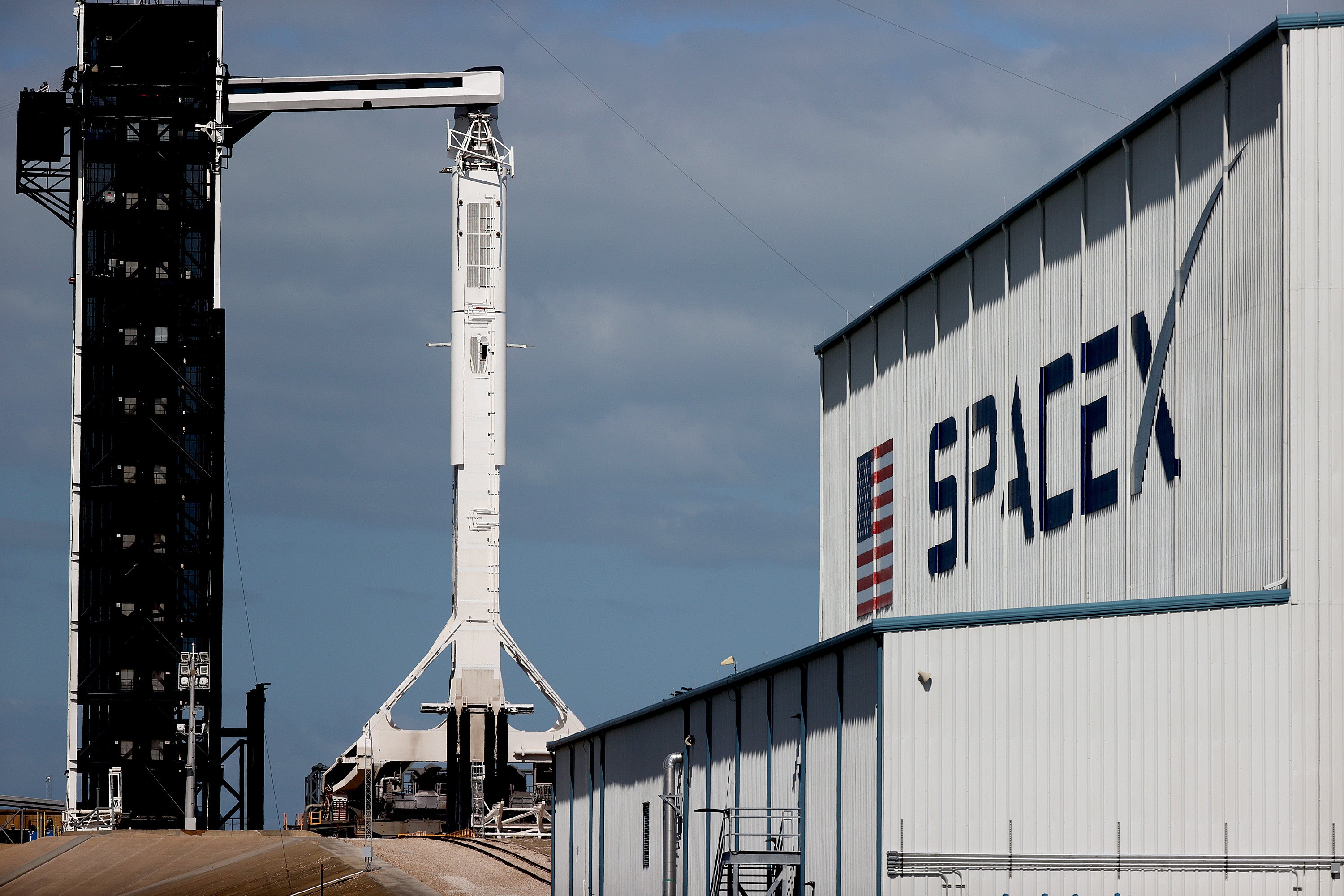Nasa warns that Elon Musk’s SpaceX internet satellites could stop humans getting to space
Starlink could lead to a ‘significant increase’ in ‘possible impacts to Nasa’s science and human spaceflight missions’

Nasa has raised concerns about SpaceX’s megaconstellation because of the risks of collision in Earth’s orbit.
The American space agency told the Federal Communications Commission (FCC) that it had worries about “the potential for a significant increase in the frequency of conjunction events and possible impacts to Nasa’s science and human spaceflight missions".
There are currently 25,000 total objects in orbit around the Earth, with over 6,000 of them below 600 kilometres. ‘Low-Earth orbit’, a height at which satellite networks such as Starlink would operate in, is defined as an altitude of 2,000 kilometres or less.
SpaceX’s expansion of Starlink would “more than double the number of tracked objects in orbit and increase the number of objects below 600 km over five-fold," Nasa also said. SpaceX currently has plans to deploy roughly 30,000 satellites in orbit.
"We’ve been concerned with having these large numbers of satellites that interfere with astronomical observations,” Harvard-Smithsonian astrophysicist Jonathan McDowell, part of the American Astronomical Society panel examining the impacts of satellites on astronomy, said.
“I think we need a little more experience with the several thousand operating satellites before we can ramp up to the tens of thousands."
While extremely costly to deploy, satellite technology can provide high-speed internet for people who live in rural or hard-to-serve places where fiber optic cables and cell towers do not reach.
The technology could also be a critical backstop when hurricanes or other natural disasters disrupt communication.
SpaceX has 1,469 Starlink satellites active and 272 moving to operational orbits soon. The company did not respond to a request for comment.
Amazon, which is competing with SpaceX’s Starlink with its own Project Kuiper program, also raised concerns about the program as tens of thousands of satellites could interfere with its own system.
"The effect of this orbital overlap would be a dramatic increase in risks and other burdens on the Kuiper System" and asked the FCC to impose "reasonable conditions."
Amazon has made similar requests of the agency in the past, saying that such interference would be “dangerous”. SpaceX contended that Amazon was trying to “hamstring” Starlink and has had “30 meetings to oppose SpaceX” but “no meetings to authorize its own system.”
After a recent geomagnetic storm SpaceX may have lost 40 of the 49 satellites launched last week, with an increase in drag preventing them from reaching their final orbit.
This means every satellite will now fall back to Earth, destroying themselves upon re-entry. While the costs of a satellite launch are not clear, in Elon Musk has said since 2016 that the launch cost of a single Falcon 9 rocket is $62 million.
Additional reporting by Reuters
Join our commenting forum
Join thought-provoking conversations, follow other Independent readers and see their replies
Comments
Bookmark popover
Removed from bookmarks